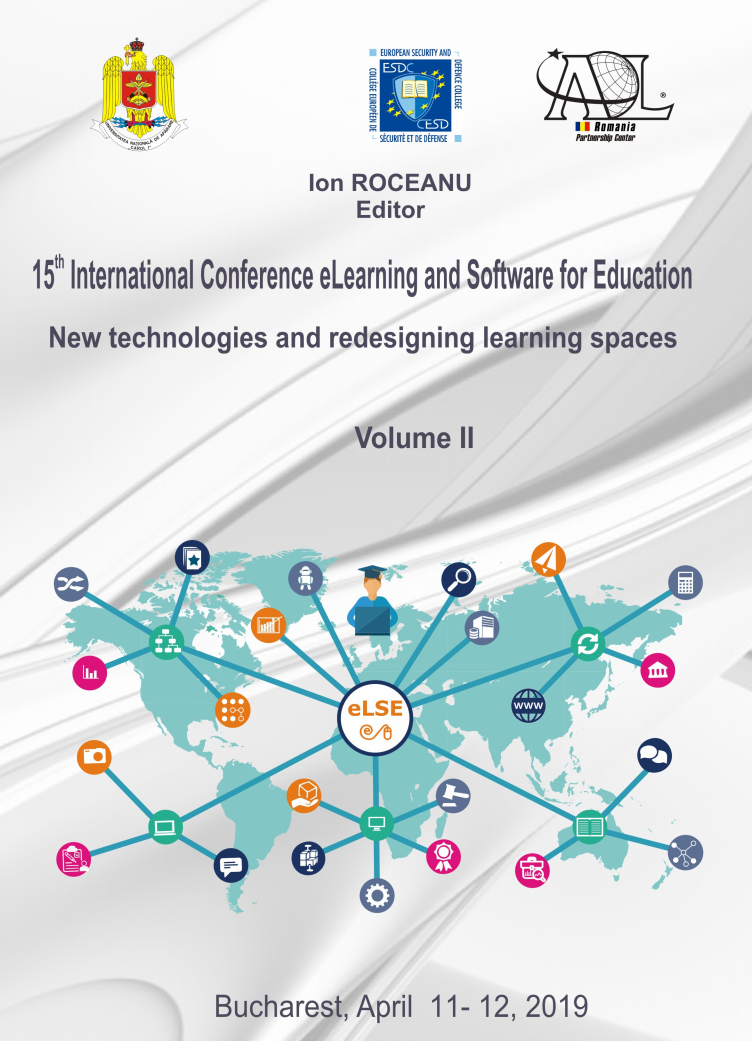Teachers` Needs and Readiness for Employing OER – A Survey within the Romanian Primary and Secondary Education Context
Teachers` Needs and Readiness for Employing OER – A Survey within the Romanian Primary and Secondary Education Context
Author(s): Petre Botnariuc, Speranța ȚIBUSubject(s): Social Sciences, Education, Higher Education
Published by: Carol I National Defence University Publishing House
Keywords: open educational resources; innovative learning methods; teachers` needs analysis; digital education; curriculum implementation; eLearning;education reform;
Summary/Abstract: The use of Open Educational Resources (OER) in the education system is a very important topic on the European Union and national policy agenda as well as in the teachers Professional Development and training. Various good practices in harnessing OER potential for pupils` learning are rising all over Romania. The current article sums up the results of a national study [1] designed within the context of a national multi-annual macro-structural project being implemented at national level - Relevant Curriculum, Open Education for All (CRED). A significand objective of the project is to facilitate the development of relevant OER and train teachers in order to support the current national curriculum reform. We will describe here the main issues associated with a systemic approach to implementing OER in the primary and secondary education practice in Romania, as shown by a thorough analysis undertook by the Institute of Education Sciences – IES in mid-2018 on this topic within the above-mentioned project [1]. The needs analysis had a mixed quantitative and qualitative methodology approach and interviewed and surveyed Romanian teachers from both primary and secondary schools with regard to their prior experience in employing OER in the teaching practice, their specific hindrances and actual OER implementation needs. The main strategic implementation options are explored, discussing important factors like: opening access culture, digital environment and infrastructure, specific knowledge on licensing for an informed usage, types of open resources and ways of employing them in the teaching practice, specific target groups` implementation differences. A number of recommendations are also proposed based on the study results.
Journal: Conference proceedings of »eLearning and Software for Education« (eLSE)
- Issue Year: 15/2019
- Issue No: 02
- Page Range: 184-189
- Page Count: 6
- Language: English

